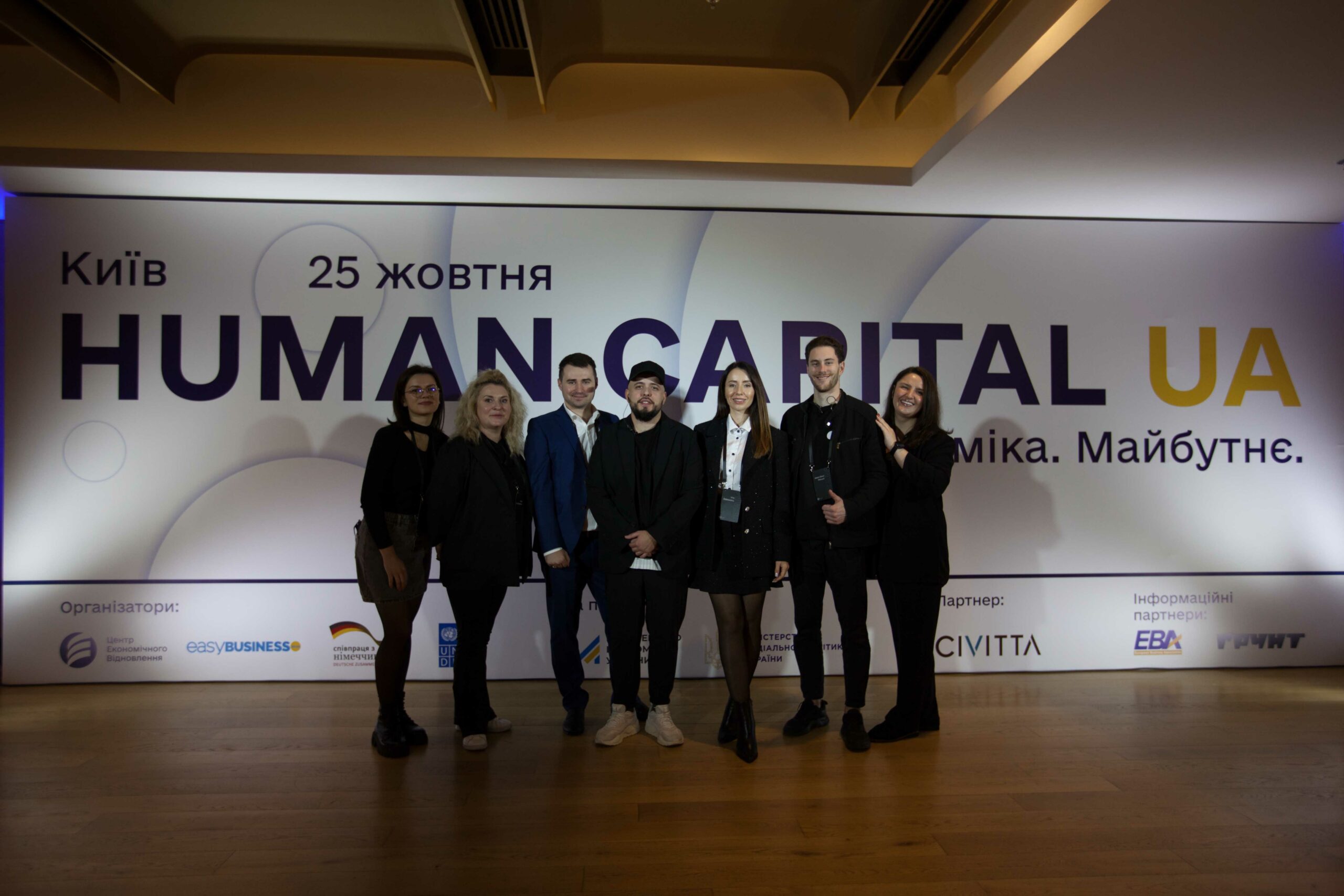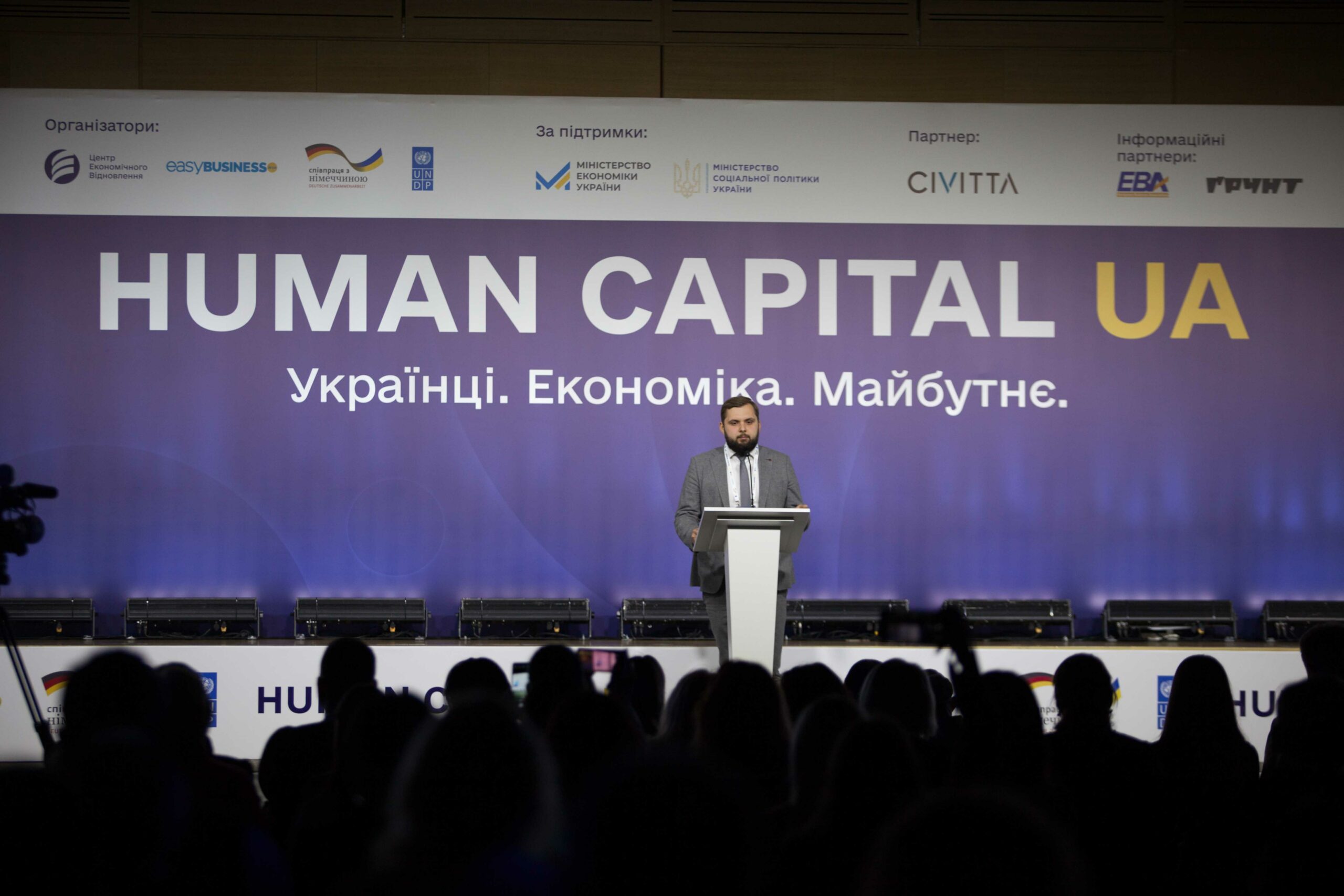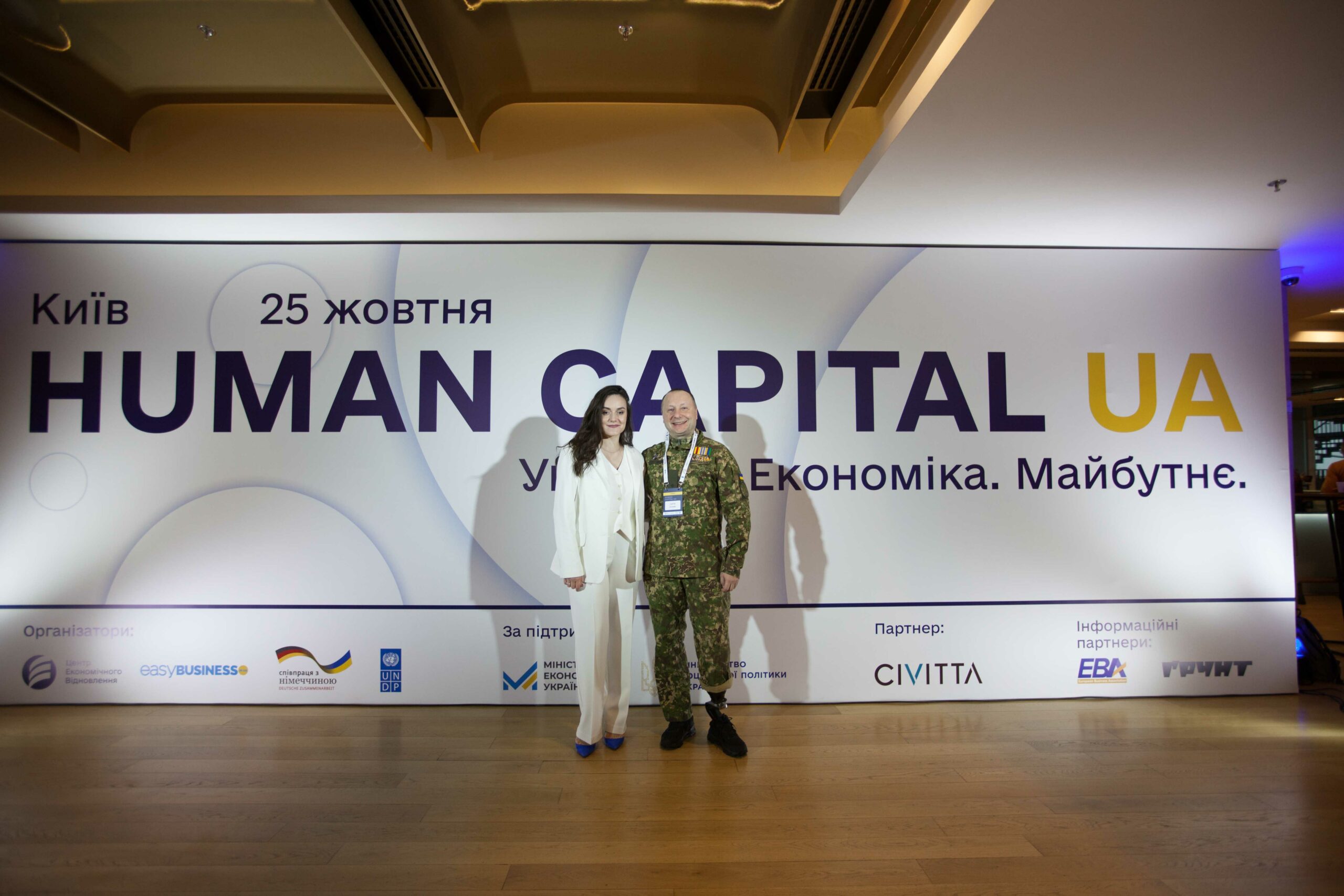The role of human capital in Ukraine’s recovery explored at Human Capital UA forum in Kyiv

Government officials, business community representatives, civil activists, and demographers gathered at the Human Capital UA forum to discuss human capital development in Ukraine.
The issue of human capital development has become one of the biggest challenges for Ukraine. The full-scale aggression has caused the largest migration crisis since World War II, with 6.5 million Ukrainians forced to go abroad. On October 25, Kyiv hosted Human Capital UA 2023, a forum on the development of Ukraine's human capital.

The event was organized by the Centre for Economic Recovery, EasyBusiness non-profit organization, and the United Nations Development Programme (UNDP) in Ukraine, with funding from the German government.


The event was attended by over 1200 guests in online and offline formats. Yulia Svyrydenko, First Deputy Prime Minister of Ukraine and Minister of Economy, spotlighted human capital's importance at a forum, noting the migration crisis with over 6 million Ukrainians abroad, as per UN data.
She stressed the joint responsibility of all governmental bodies in their repatriation and noted that the Ukrainians abroad are valuable for the country, serving as pivotal links to the EU, essential for both current alignment and future recovery.
Our Ministry is advancing efforts from security enhancement via humanitarian demining to establishing employment and education pathways, A testament to our commitment is the successful year-long "eOselia" housing programme.
During the event, in-depth research on various aspects of Ukraine's human capital was presented by EasyBusiness and the Center for Economic Recovery (CER). Kyrylo Kryvolap, the organizer of the event and head of the CER, noted that the non-return of forced migrants will cost Ukraine $113 billion in lost GDP over 10 years. Ukraine will lose about $45 billion in taxes over this period.

These data once again underscore the importance of developing human capital in Ukraine. It's not just about stimulating economic growth but also about rebuilding society after numerous challenges. We believe in the deep potential of the Ukrainian people and are committed to helping Ukraine develop and implement policies and strategies that create a conducive environment for education, health, social protection, employment opportunities, and much more, Jaco Cilliers, UNDP Resident Representative to Ukraine, emphasized.

To achieve annual GDP growth of 7% by 2032, Ukraine will need about 4.5 million additional workers.

Ukrainians who were forced to flee the country because of the war are not recognized as refugees, but as military migrants. According to Ella Libanova, director of the Ptukha Institute for Demography and Social Studies, no more than half of the military migrants will return to Ukraine after the war. However, it is not only Ukrainians who will return to their homeland that are important. The diaspora can also contribute to the country's future.

She also said that a high commitment to education is one of the tools for accumulating human capital.





















































